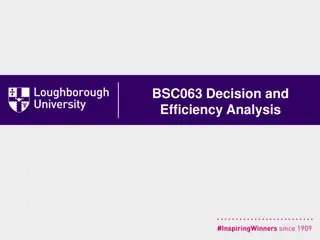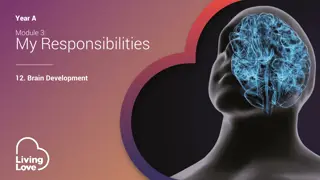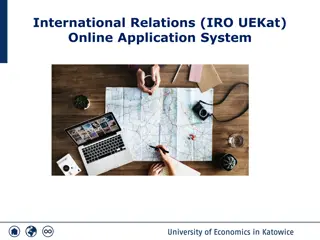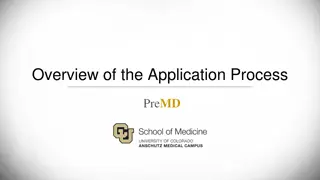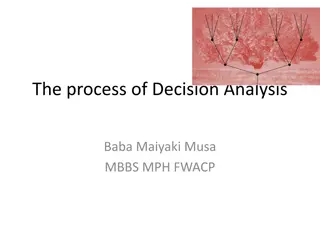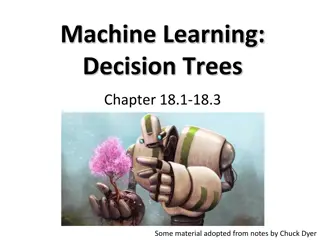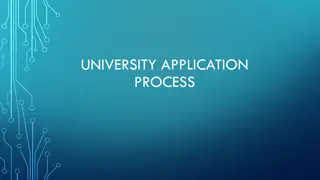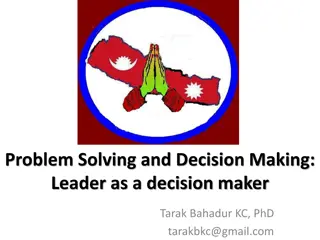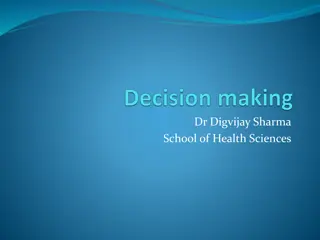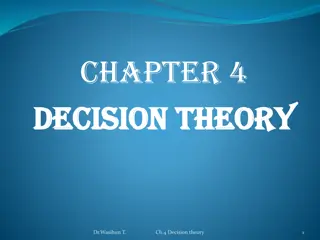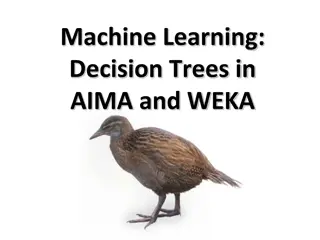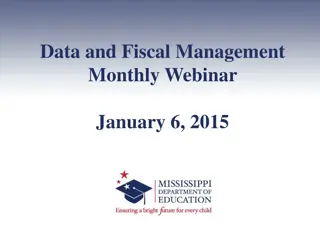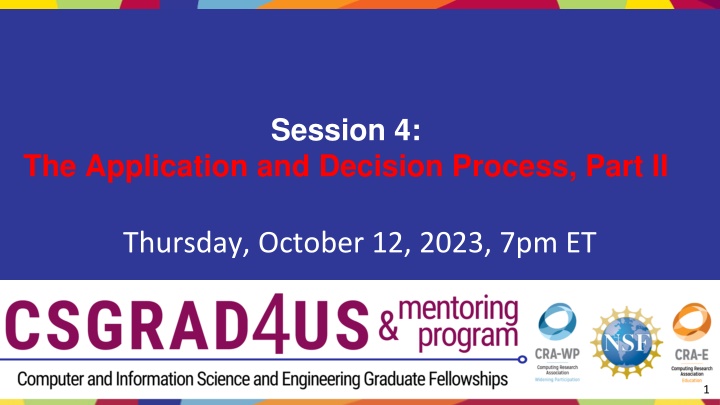
Effective Strategies for Contacting Potential PhD Advisors
Learn valuable tips on how to effectively reach out to potential PhD advisors, including researching their work, sending a professional email with your CV, and understanding when to contact them. Discover how to handle situations where you don't receive a reply or encounter specific instructions on their website. Maximize your chances of securing a strong advisor for your PhD program.
Download Presentation

Please find below an Image/Link to download the presentation.
The content on the website is provided AS IS for your information and personal use only. It may not be sold, licensed, or shared on other websites without obtaining consent from the author. If you encounter any issues during the download, it is possible that the publisher has removed the file from their server.
You are allowed to download the files provided on this website for personal or commercial use, subject to the condition that they are used lawfully. All files are the property of their respective owners.
The content on the website is provided AS IS for your information and personal use only. It may not be sold, licensed, or shared on other websites without obtaining consent from the author.
E N D
Presentation Transcript
Session 4: The Application and Decision Process, Part II Thursday, October 12, 2023, 7pm ET 1
REMINDER!! Please complete the CSGrad4US Entry survey administered by our external evaluator (Center for Evaluation & Research for STEM Equity @ UW) email from From Name: Erin Carll From Email: noreply@qemailserver.com Reply Email: ecarll@uw.edu Subject: CSGrad4US Evaluation Survey Closes on Sunday, October 15 2
The Application and Decision Process, Part II Previous sessions Preparing a strong PhD application (general guidelines) Identify what you are looking for in a PhD program Identify potentially suitable programs Understand the admissions process Session 4 Revisit Contacting a possible adviser Identifying letter writers Choices to make: research area, adviser, research topic The importance of campus visits 3
Contacting Potential Advisors Very common: Applicants are accepted if a faculty commits to advise. What should I do? Explore and identify programs and faculty in your areas of interest Before reaching out to faculty: Do your homework! Look out for specific instructions on their webpage about what to do before contacting them. Are you familiar with their recent research activities? Have you reviewed samples of their papers or presentations? What work interests you the most? Not: Dear X, I am very interested in your research area 4
Contacting Potential Advisors (2) Send an email Include your CV and (briefly) introduce yourself State that you have a fellowship (include a 1-pager about CSGrad4US) If you graduated 5+ years ago, consider highlighting relevant working experience Talk to your coach on what to highlight in the email Two options when to contact 1. Before you apply You get a sense of interest and whether it is a good match. You may or may not apply 2. After you have applied You should have mentioned the name in the application. They most likely have read the application before talking to you 5
Contacting Potential Advisors (3) What if I don t get a reply? Mail got lost, not taking on new students, not interested Can send a reminder, but no more What if their webpage states Do not contact , Put my name into your application ? Follow the guidance What if their webpage is quite outdated? It happens Publications and some activities can be found in other ways (e.g., Google scholar) 6
Contacting Potential Advisors After your email If you receive a positive response: Request a meeting (call or Zoom) Prepare to talk about their research and your experience/interests If your letter writers (or coach or area adviser) know faculty of interest, ask whether they would make contact and advocate for you 7
CS versus I-school: Expected background Applying to a CS program The majority of the students will have a BS/BE in CS/CE If background is equivalent to a minor in CS, some additional coursework may be recommended An admitted student can generally switch advisers Applying to an I-school program I-schools contain diverse and broad subareas, with each subarea generally having its own background expectations/skills of admitted PhD students Identifying the faculty/subareas of research interests is crucial Explicitly asked to identify multiple faculty / interests in application Reach out to the faculty about background expectations for admissions and working with them Focus your application on those characteristics 8
CISE Programs @ UW Paul G Allen School of Computer Science & Engineering Offers PhD in Computer Science admission is highly competitive; about 5% acceptance rate with 3000 applications Information School PhD degree in Information Science; requirements are flexible and CISE content depends on research area about 17% acceptance rate with 150 applications Faculty has diverse backgrounds Department of Human Centered Design and Engineering Contains CISE research areas and CISE faculty (e.g., Kate Starbird) A Department in the College of Engineering Electrical and Computer Engineering Contains CISE research areas and CISE faculty 9
CISE Programs @UC Irvine Bren School of Information and Computer Science 3 departments: Computer Science, Informatics, and Statistics PhD programs in CS and Informatics are CISE; Stat is not CISE PhD Admission to the Bren School CS and Informatics have faculty with joint appointments PhD admission is separate (each department has 2 PhD programs). Compared to CS, Informatics has very different course requirements and a different qualifier system EECS Department in School of Engineering The CS part of EECS offers a CISE PhD program; other parts of EECS may not (circuits and systems, EE systems) Professor of Electrical Engineering and Computer Science refers to a person in EECS, not CS 10
Does the PhD program structure matter? Need/want more background and more breadth? Choose a program with more required courses Want to explore different research areas? Choose a program that gives flexibility on required breadth areas Want to focus on research right away? Choose a program with fewer required courses Already have an MS? Can credits be transferred? Want to gain teaching experience? Are graduate students allowed to teach? 11
More on Letter Writers Some letter writers will ask you which schools you plan to apply to before they agree to write a letter Academics know how to submit recommendation letters May be new or unfamiliar for a colleague or boss Letter writers should know you/remember you. Help them remember! Many faculty keep records Digital records (e.g., emails, Gradescope submissions) Top performance in an advanced course is often meaningful 12
How to Ask for a Recommendation (from Session 2) Ask at least a month in advance Ask if they can write a strong, positive letter and give them a way to say "no" I m applying to graduate school. Would you feel comfortable writing a positive letter for me? If so, I d be grateful. If you are not able to do this for any reason, I ll certainly understand. Provide fodder for their letter Application (resume, statement of purpose, transcript) Reminder of significant/shared events that you participated in and excelled at We will provide a letter describing the Fellowship Offer to have a conversation to update them on your career and goals Provide industry writers with guidance on what to include Concrete experiences and projects Strengths and weaknesses Personal characteristics - independence, creativity, motivation, follow-through, communication, leadership, teamwork, etc. 13
Questions? Clarifications? 14
Most important decisions a PhD student makes start at application time Choose an area of interest and faculty in the area Research areas in the department Research topic (chosen once you are in grad school) Choose a research (sub)area, an adviser, a research topic 15
Common research areas Security / Privacy / Information Assurance Social Computing / Social Informatics Human-Computer Interaction Artificial Intelligence / Machine Learning Robotics / Vision Theory and Algorithms Networking Quantum Computing Software Engineering Graphics / Visualization High-Performance Computing Operating Systems Computing Education Scientific / Numerical Computing Programming Languages / Compilers Information Science Databases / Information Retrieval Information Systems Informatics: Bioinformatics / Other Science Hardware / Architecture 16
Choosing a Research Area (at application time and/or in year 1) What research topics excite you and why? How much knowledge and experience do you already have in that area? How strong are the department and research groups in this area? How many faculty members work in this area? What are their academic ranks? Is interest in the research area existing and growing? 17
Choosing a Research Advisor Renowned vs. beginning researchers Do your homework! Check out the following for a potential advisor: How many students have graduated and when did they graduate? How many papers (and where) did students publish with the advisor? Where are those students now (academia, industry)? Determine if PhD students do industry internships that lead to publications Talk to students working with potential advisor Read faculty members' papers and watch research talks online Talk to faculty on Zoom 18
Choosing a Research Advisor (2) What is the advisors collaboration style like? How responsive are they to email or stopping by their office? What is the frequency and duration of group and 1:1 meetings? Do students work on individual projects or in groups? Are there post- docs? Do they have funding for students as RAs and conference travel? Are they taking on new students? Taking a leave? How do they decide to accept new students? Do they co-advise students with other faculty? More viewpoints in a PhD Adviser Guide from CS@Columbia 19
Choosing a Research Advisor / Group Research groups can have different organizations, interactions, and collaborations among the students and post-docs. Common questions include How do new students learn about research? How do individual students find their individual thesis topics? How do group members collaborate? Do group members do peer-mentoring, especially for junior members? How is credit assigned on collaborative papers? 20
Breakout Session What adviser-student interaction style do you feel will work best for you? How are your choices influenced by supervisors you had? Your personality? Examples: Hands-off or hands-on adviser? Develop your skills independently or with peers? Work better alone or in a group? Self-motivated or want goals set? What is most important to you? 21
Choosing a Research Topic Want to be passionate about it Want advisor to be committed to it Want topic to still be of community interest (and funded) in 3-4 years Want a topic where you can make significant contributions over 3-4 years avoid incremental or exceptionally difficult problems potential for the future is important for an academic career Want a topic for which the needed resources are available Note: An adviser may make an RA offer to work on a specific funded research topic. Can be a difficult decision for a student 22
Choosing a Research Topic (2) Don t state your research topic at the time of your application okay to list topics of interest An adviser may make an RA offer to a student to work on a specific funded research topic. can be a difficult decision for a student Changing adviser? unclear what happens to the research topic will be discussed more in session 5 23
Review of CSGrad4US Mentee Timeline Ask letter writers Give them resume, personal statement & transcripts Finalize application materials and get feedback Submit applications Undergrad degree in CS or related area Industrial experiences Interest in a PhD Before being selected as a Fellow Late Fall of 2023 Early Fall 2023 Spring 2024 Update your resume Draft personal statement Identify letter writers Select schools to apply to and identify possible advisers If needed, study for and take GREs Hear from schools Visit schools Make a decision! 24
Deciding Between Admissions Offers? You should go on campus visits before making a decision .. 26
Campus Visits (Winter/early Spring semester) Go on Campus Visits! Campus Visit Checklist Book your accommodations through the university (if possible) Many schools invite applicants for a campus visit (most after admission, some before admission decisions) Set up meetings with faculty and grad student staff Make use of it (often free) and meet people and see the department! Ask to meet with Ph.D. students If you get too many invitations, prioritize based on your factors. Ask your coach for guidance. If you have special needs, meet with the appropriate campus office If you can t make a school s scheduled visit day , ask if you can visit some other time. Inform yourself about the department before the visit 27
Meetings with Faculty in your Area(s) of Interest Explain your NSF Fellowship fellowship support for 3 years institution provides support for remaining 2-3 years What projects are in their current/near term agenda? Do they expect to be taking on new students? What is the departmental culture? 28
More questions to consider asking Do you consider yourself more of a hands-on or hands-off advisor? How is the lab structured? Are there research collaborations between students in your group? How often do you meet your students? Individually or in in groups? What is typically discussed? What progress do you generally expect from a student in the course of a semester? What projects are in your current/near term agenda? What do you do when students are struggling? Do you expect to be taking on new students? What factors will affect whether or not you take a student? How do you integrate new students into the lab? Do you think our research interests are a good match? In general, do you tend to give your students projects/topics or have them select their own? Are there any specific courses that students in your lab take? What do your students do during summers? Are there other faculty in the department you think I d be a good match for? 29
Meetings with Graduate Program Director and Support Staff What are the PhD requirements and expected timeline? What is the typical semester course load? What happens when a student has difficulty finding an advisor/funding? 30
Meetings with Graduate Students Find out about the culture within the department and their labs Academic environment Support for interdisciplinary work Mentoring styles Professional development Career support (internships and initial positions) Social environment Living situation Cost of living Quality of life 31
Revisit the Factors You Previously Considered Student engagement/success Research foci Faculty size Publication Impact Collective View: Program, Department & Institution Individual View: Faculty & Labs Reputation Collaborative network Student life/academic culture Industry engagement Financial support Location Funding 32
Thank Yous and Regrets Send a note of appreciation to every person (faculty, staff or student) who notably interacted with you Ask faculty any outstanding questions When will they expect to know if they are interested and able to accept you into their lab? Provide feedback if you have made some firm decisions would definitely accept if you receive an offer would be very interested if you receive an offer enjoyed your visit and look forward to hearing from them enjoyed your visit, but have decided to accept another offer Always be honest! It is a small world. You will see many of these people again and again Once you accept an offer, let other departments know asap 33
Finally, Document Your Efforts Each program you investigated or plan to investigate Summarize the important information pros and cons, size, For each program, which faculty look like potential advisors Summarize the important information pros and cons, research areas, productivity For each potential advisor Relevant info about their research areas, productivity, funding, etc. Status of your application Accepted/Not accepted/Didn t apply; visit plans Recommend a spreadsheet that you share with your coach 34
Review all application-related material we covered You should have questions! Talk to your coach, come to office hours. Keep working on your application material 35
Coming up next ... Panel 2: Q&A with Cohort 1 and 2 CSGrad4US Fellows Thursday, October 19, 2023, 7pm Panel 3: What I Wish I had Known Before Attending Graduate School Thursday, November 2, 2023, 7pm 36


